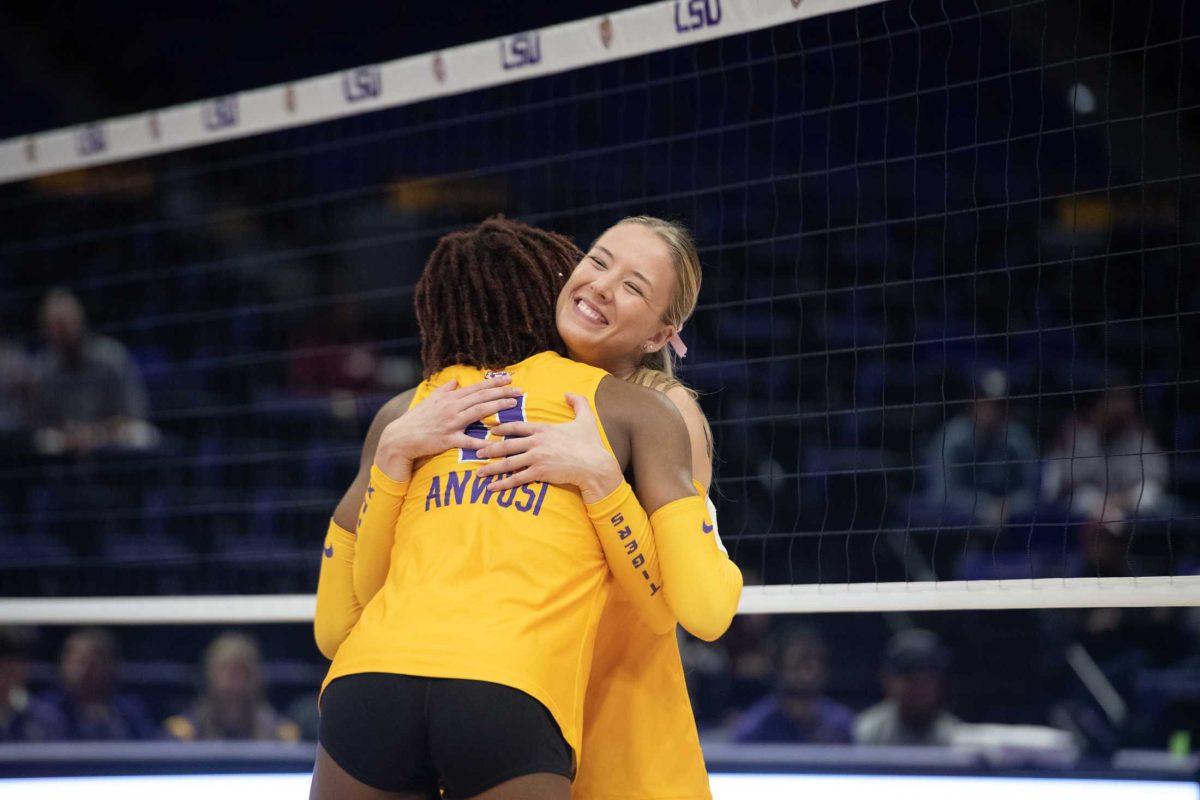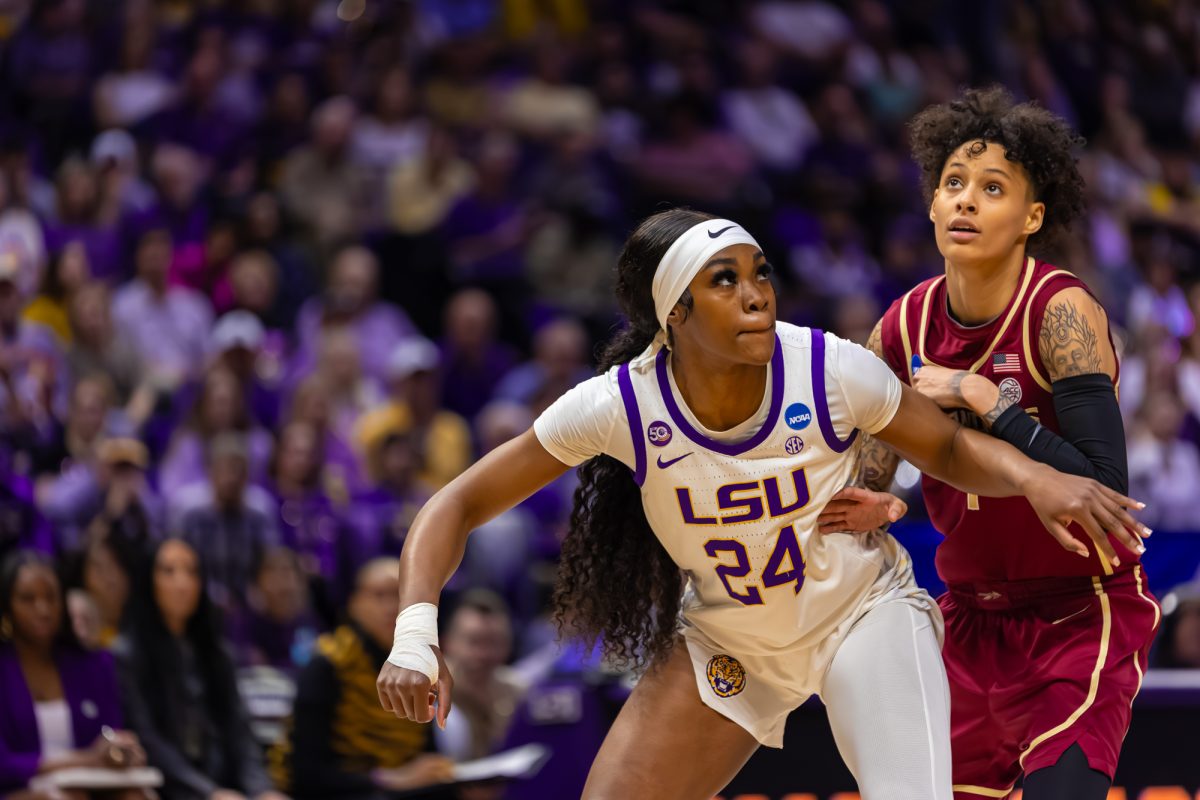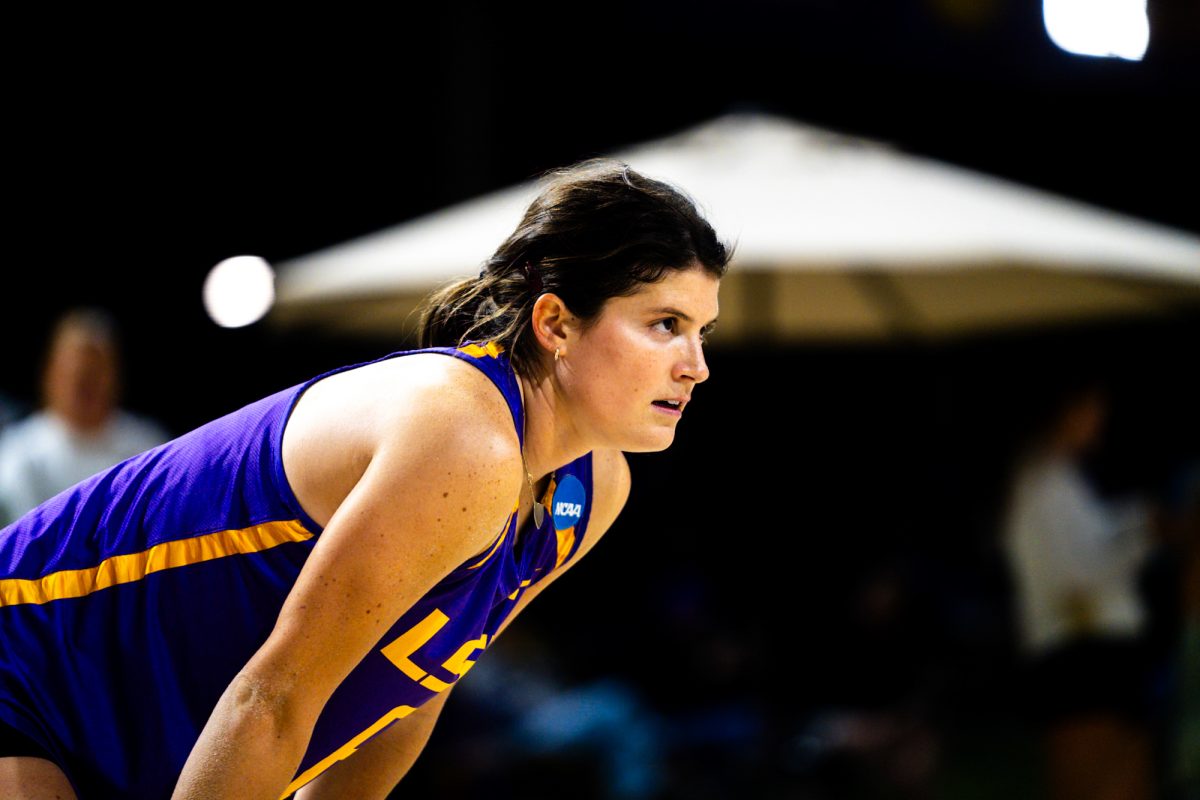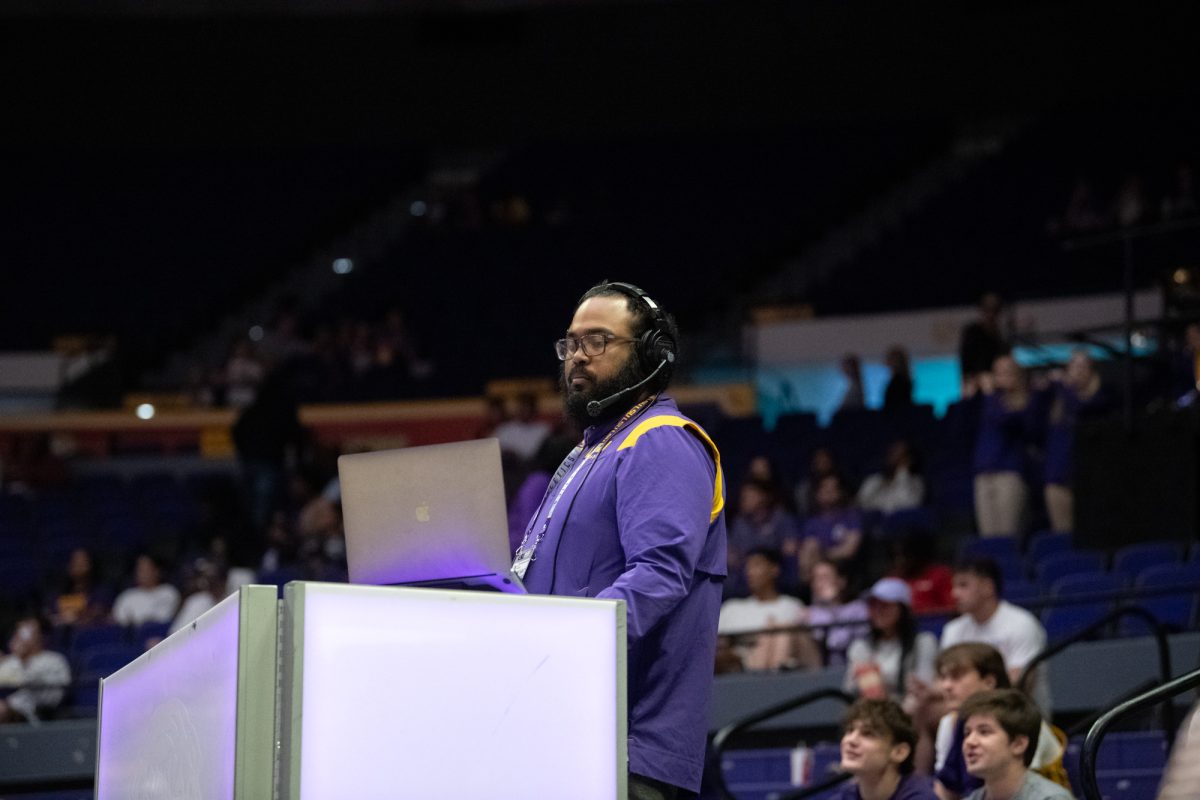When LSU’s name was called for the NCAA Division I Tournament, it was surprising for a number of reasons.
For one, it would’ve been hard to imagine that LSU would be a significantly better team this year than it was last year. In fact, it would’ve been much more realistic to say it would regress. The Tigers lost two All-SEC selections to graduation in Kylie Deberg and Taylor Bannister, as well as the program’s all-time digs leader in Raigen Cianciulli. On top of that, the program welcomed new Head Coach Tonya Johnson after the retirement of Fran Flory, who led the team for 24 years.
Still, LSU finished with an improved overall record of 16-14 after the NCAA Tournament, compared to 13-14 last season. That came even after a rough 2-5 finish to the regular season that saw LSU drop in the RPI rankings from a high of No. 28 down to No. 48 and put LSU’s tournament chances in doubt.
However, LSU’s placement in the bracket–facing against the No. 8 seed in its region, Hawai’i, and ranking as the third-best team in its subregion–indicated that it made the tournament with room to spare. It was affirmation that the Tigers belonged in the postseason, an opportunity the team was grateful for.
“Coming into the tournament, it was another chance for us to play volleyball. We just went out there and we had nothing to lose. We just wanted to ball out and give our best shot,” said sophomore libero Ella Larkin.
Johnson preached to her team that the tournament was a completely blank slate. LSU was 0-0. She also made it clear that she didn’t believe LSU had played its best volleyball yet, a refrain she’d repeated so often in recent weeks that it had become a joke around the team.
Even so, Hawai’i represented a tough opponent for the Tigers with plenty of postseason experience, having made the tournament for 29 straight years and standing as Big West conference champions with a 22-6 overall record.
In the first set, that experience showed. The frame was tied at 17-17 when the Tigers gave up a 4-0 Hawai’i run that practically sealed the set for the Rainbow Wahine. They would go on to win the set, 25-21. It was the kind of punch in the mouth that could have shifted the match’s momentum irreversibly toward Hawai’i.
The team refused to give up, according to Larkin: “Our mindset is, ‘okay, they got a good kill. So what? Next play.’ They won that set. Next set, completely new set.”
The next two sets were back-and-forth, with both heading to the media timeouts with LSU leading 15-14. In both instances, the Tigers came out of the media timeout focused and pulled out comfortable wins. The second frame was a 25-19 win for LSU, and the third set went to the Tigers by a score of 25-20.
“I felt like the last few weeks, we would play well up until 17, 18 points, and then we would just leave a tiny crack in the door for our opponents to come back and go on runs against us. We talked about that a lot this week, making sure that we just kept our foot on the gas and kept moving forward, and not holding on to the mistakes that we were making or the points that our opponents just scored,” Johnson said regarding LSU’s strong closing efforts in those sets.
LSU came out strong in the fourth set, as well, pulling out to an early 8-4 lead that it more or less maintained the rest of the way. A Hawai’i service error would eventually bring an end to the set and the match. The Tigers had struggled to avoid fifth sets all year long, but closed out their most important game of the year in four frames.
LSU’s win came as a result of its defense tightening up. The Rainbow Wahine tallied 17 kills on an efficient .378 hitting percentage in the first set, but were held to an .079 mark in the final three frames. That improvement came as a result of inspired blocking, with the Tigers notching 13 blocks in the last three sets after coming up with only one in the first.
“We put a lot of our focus this week on stopping [Hawai’i’ hitters] Amber [Igiede] and [Riley] Wagoner and just making sure that we got something in front of them,” said Johnson. “I told them, we’re not going to always get the big stuff block every time, but if we can just slow the ball down, we can play behind that and run our offense. I thought we got some unbelievable touches tonight on the block.”
The following day, LSU advanced to the second round to face Stanford, the overall No. 4 seed in the tournament and the top seed in the Tigers’ region of the bracket. Stanford came into the game with a record of 25-4 and hadn’t lost since September. History was also on the Cardinal’s side, as a top four national seed has lost in the second round of the tournament only twice since 2000.
The match offered little suspense, with the opening set seeing LSU fall 11-25, their worst set loss of the year. The Tigers dropped the second frame 15-25 and built a 19-15 lead in the third set before Stanford took over to complete the sweep with a 25-21 win.
That loss represented the end of LSU’s season, a season of positive development that will be the foundation going forward for what LSU and Johnson hope to build.













